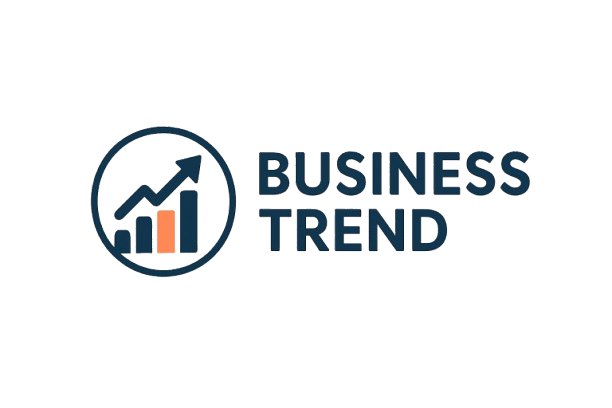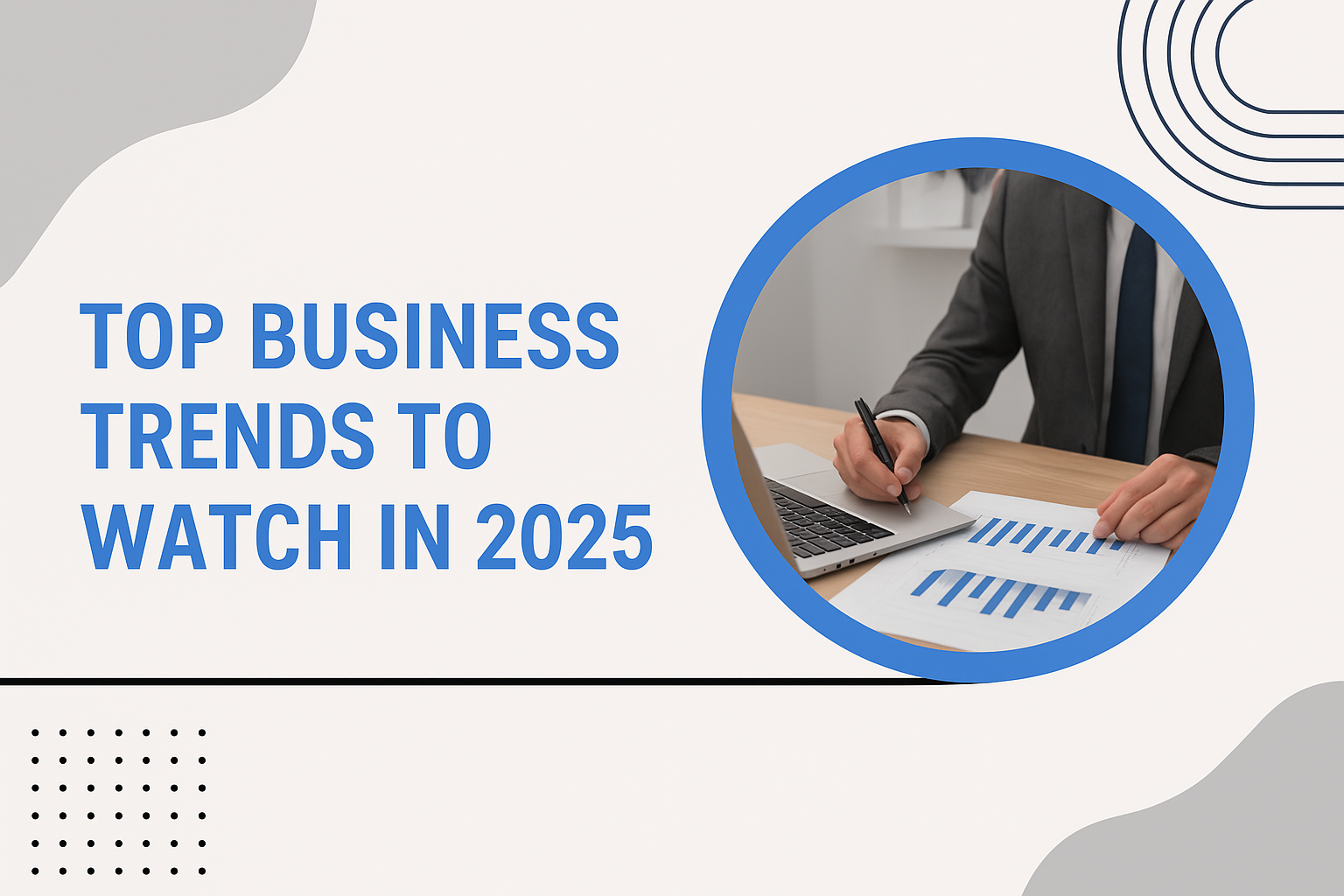Introduction
The world of business is transforming faster than ever before. From artificial intelligence to the rise of sustainability, companies that stay ahead of the curve will define the next decade of success. The year 2025 marks a pivotal point where innovation, technology, and human creativity intersect.
Entrepreneurs, startups, and established organizations alike must understand these upcoming trends to remain competitive. The right strategic adaptation can boost growth, improve efficiency, and create stronger customer relationships.
This article explores the top business trends to watch in 2025 — the ones that are redefining industries, reshaping markets, and setting new standards for modern success.
1. Remote Work Becomes a Long-Term Norm
The remote work revolution that began during the pandemic has evolved into a permanent shift. Businesses worldwide now embrace hybrid or fully remote models to attract and retain top talent.
Organizations are learning that flexibility leads to higher productivity and satisfaction. As collaboration tools improve, companies can operate globally without centralized offices. This shift also reduces overhead costs and increases access to diverse talent pools.
However, the challenge lies in maintaining culture and communication. Smart business owners are now investing in digital collaboration platforms, virtual team-building experiences, and productivity-tracking tools to keep their teams connected and engaged.
2. Rise of Sustainable and Ethical Brands
In 2025, sustainability is no longer optional — it’s a business necessity. Consumers expect brands to act responsibly, not just talk about it. Companies that integrate environmental and ethical practices into their operations stand out and win customer loyalty.
Sustainable trends include:
-
Eco-friendly production: Using renewable energy, recyclable materials, and zero-waste manufacturing.
-
Ethical sourcing: Ensuring supply chains are transparent and fair to workers.
Brands like Patagonia and Tesla have already set the tone. Now, small and mid-sized businesses are following suit, building eco-conscious products and aligning with global sustainability goals.
Customers increasingly support brands that reflect their values, making sustainability a powerful differentiator.
3. Subscription-Based Business Models
From streaming services to software, the subscription economy continues to expand. In 2025, businesses across industries are adopting recurring revenue models to create stable income and stronger customer relationships.
Instead of one-time sales, companies focus on lifetime value by offering ongoing access to products, updates, and services. Subscription boxes, SaaS platforms, and digital memberships are booming because customers love convenience and consistency.
The key for businesses is personalization. Customizing subscriptions based on user behavior ensures satisfaction and retention. Those who innovate within this model will enjoy long-term profitability and predictable cash flow.
4. The Creator Economy and Personal Branding
One of the most exciting shifts in 2025 is the rise of the creator economy, where individuals build thriving businesses around their personal brands. Creators are no longer just influencers — they are entrepreneurs selling digital products, courses, and memberships.
Platforms like YouTube, Substack, and Patreon allow creators to monetize directly from their audiences. Even professionals in traditional industries are using content creation to grow visibility and trust.
For businesses, collaborating with micro-creators provides authentic promotion and access to niche audiences. Instead of big ad budgets, companies invest in genuine partnerships that drive engagement and conversions.
The creator economy empowers both individuals and brands to connect more meaningfully than ever before.
5. Integration of Advanced AI in Daily Operations
Artificial intelligence has moved beyond automation — it’s now the strategic brain behind modern business decisions. In 2025, companies use AI not just to save time, but to predict outcomes, personalize marketing, and optimize workflows.
AI tools assist in customer service through chatbots, automate data analysis, and even generate creative content. Decision-making becomes faster and more accurate with predictive analytics and machine learning.
Small businesses are adopting AI-powered tools for:
-
Marketing automation to optimize campaigns.
-
Customer relationship management (CRM) to forecast sales trends.
-
Content generation and analytics to save time and improve results.
AI integration helps businesses operate smarter, not harder, and gives even small startups enterprise-level capabilities.
6. Global Collaboration and Borderless Teams
Technology has made the world a truly connected workplace. In 2025, businesses are no longer limited by geography. Teams operate across continents, using digital tools to collaborate in real time.
This trend encourages diversity, innovation, and fresh perspectives. Global collaboration allows businesses to scale faster by hiring specialized talent worldwide.
However, managing a global team requires strong digital infrastructure and cultural awareness. Companies must create inclusive communication policies, schedule flexibility, and digital leadership training to ensure seamless cooperation.
The winners in this trend are those who embrace diversity as a strength — using global insight to design products and strategies that appeal to worldwide audiences.
7. Automation and Smart Workflows
Automation continues to dominate 2025. Businesses use it not just to cut costs but to improve efficiency and employee satisfaction. Smart workflows handle repetitive tasks, freeing humans for creativity and strategic work.
Robotic Process Automation (RPA) and AI tools are now mainstream in accounting, HR, logistics, and marketing. For instance, automated invoicing, scheduling, and reporting save countless hours each week.
Even small businesses can integrate affordable automation solutions through tools like Zapier, HubSpot, or Notion AI.
The key is balance — automation should simplify processes, not replace the human element that drives innovation and customer connection.
8. Personalization in Customer Experience
Modern consumers expect businesses to understand their preferences instantly. Personalized experiences — from tailored emails to dynamic website content — are now the gold standard.
Brands use data analytics to create individualized journeys that make customers feel valued. Personalized communication builds loyalty and boosts conversion rates.
For example:
-
E-commerce stores recommend products based on browsing history.
-
Service companies adjust offers according to customer feedback.
Businesses investing in customer data and personalization tools are gaining a competitive edge by turning relationships into long-term partnerships.
9. Data Security and Privacy Awareness
As digital ecosystems grow, so do concerns about data protection. In 2025, businesses that fail to secure user data risk losing both customers and credibility.
Data breaches and cyber threats have forced organizations to prioritize cybersecurity. Transparent privacy policies and secure data management systems are now expected, not optional.
Investing in strong encryption, authentication systems, and data governance builds trust. Customers are more likely to engage with businesses that clearly communicate how their information is used and protected.
Security is not just an IT issue anymore—it’s part of the brand’s promise.
10. The Fusion of Technology and Human Connection
While technology dominates business evolution, 2025 also highlights a return to human-centered experiences. The most successful companies blend automation with empathy, ensuring customers still feel valued.
Businesses are humanizing digital interactions through storytelling, personalized communication, and responsive customer support. The trend emphasizes emotional intelligence, not just data intelligence.
Entrepreneurs who balance technology with human touch will lead industries—because people still buy from people, not machines.
Conclusion
The business landscape of 2025 is driven by innovation, adaptability, and purpose. Trends like AI integration, sustainability, global collaboration, and personalization are reshaping the way companies grow and connect with audiences.
For business owners, staying informed and flexible is key. The ability to evolve with these changes separates thriving brands from those left behind.
Each trend represents not just a challenge, but an opportunity — to rethink business models, strengthen customer loyalty, and build a brand prepared for the future.
By embracing technology while staying true to human values, businesses can lead with confidence and create lasting success in the years to come.


